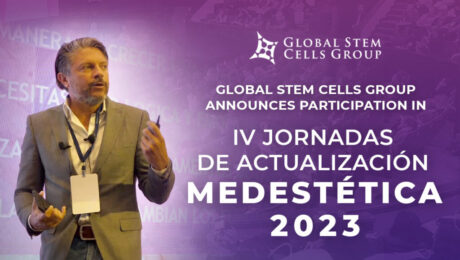Global Stem Cells Group (GSCG), a leading provider of regenerative medicine solutions, is proud to announce its participation in the IV Jornadas de Actualización Medestética 2023 through the International Society for Stem Cell Association (ISSCA), its educational division and also with its line of Cellgenic Exosomes products. The congress, which will take place on March
Induced pluripotent stem cells (also known as iPS cells or iPSCs) are a type of pluripotent stem cell that can be generated directly from a somatic cell. Pluripotent stem cells hold promise in the field of regenerative medicine. Because they can propagate indefinitely, as well as give rise to every other cell type in the




